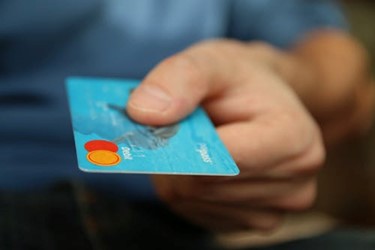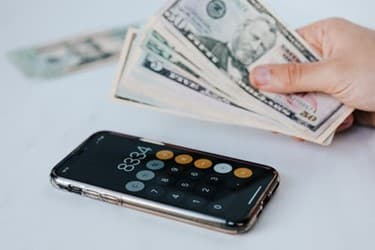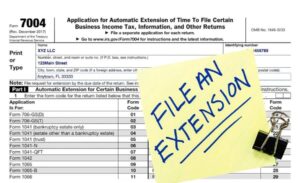Are you dealing with debt from student loans, credit cards, or other sources that are causing you stress? Do you wonder how you’ll ever be able to get out of debt when the numbers seem to never go down? If you are dealing with debt, you’re not alone. An estimated 80% of Americans are dealing with unwanted debt, many of them to a point that they are unable to pay their monthly bills on time. If you are struggling with debt, here are some tips to help you dig yourself out of the money hole so you can begin the path to financial freedom.
Pay More Than the Minimums
It’s easy to just glance at the minimum payments on your cards and write a check, especially if you don’t have a lot leftover from every paycheck. However, paying only the minimum often means you’re only paying a few dollars on the actual balance each month with the rest of the payment going toward interest. The only way you’ll be able to pay off your cards is if you pay more than the minimum. If you’re having a tight month, this might mean only paying $10 or $20 over the minimum, but this will still help. If you free up some extra cash, put as much as possible toward the balances to bring down the totals faster.
Start a Debt Snowball
If you have multiple credit cards, you may be tempted to either tackle the one with the highest balance or the one with the highest interest rate first. However, the opposite strategy can sometimes be the best. If you go after the smallest balance, you’ll have a sense of accomplishment when you pay it off that will motivate you to try even harder. You can also use the money you free up to put toward your next largest balance. This creates a snowball effect where you pay off each card quicker—and feel good about doing it.
Don’t Close Out Cards
Once you’ve paid off a balance, don’t immediately close the account. One of the ways your credit score is determined is by looking at the percentage of credit you are using. Cards without balances will work in your favor and help you increase your credit score. Worried you’ll be tempted to use the card again? Cut it up or put a freeze on the account to remove the temptation.
Stop Applying for New Cards
Applying for new credit cards or taking out new loans negatively affects your credit and gives you more of a license to spend money you don’t have. Only apply for loans or credit cards if you truly need them and try to pay off any balances as soon as possible.
Monitor Your Credit
Regularly looking at your credit reports and scores will help you quickly identify any fraudulent activity and will also help you find areas of improvement. Checking the three main credit bureaus—TransUnion, Equifax, and Experian—will help you better understand your credit and help you prepare if you need to qualify for a large loan for a mortgage or vehicle.
Pay Bills on Time
Late payments negatively affect your credit and can lead to pricy overdue or interest fees. One of the best ways to ensure your bills are paid on time is to put your accounts on autopay. That way, you won’t have to worry about writing checks or getting payments in the mail by a certain date. To make autopay even more effective in reducing your debt, set each autopayment to be more than the minimum balance.
Build an Emergency Fund
Many consumers get into credit trouble because they have a major expense they have not saved for and end up putting it on credit. To avoid this, put money from each paycheck into an emergency account that you don’t touch unless it’s absolutely necessary. Funneling just $50 a paycheck into a savings account can lead to a needed cushion when you need it the most.
Having debt is a lifelong issue for many Americans and can keep them from living a life of financial freedom. If you want more advice on how to handle your debt, reach out to the experienced financial experts at Hayes & Associates for assistance.





